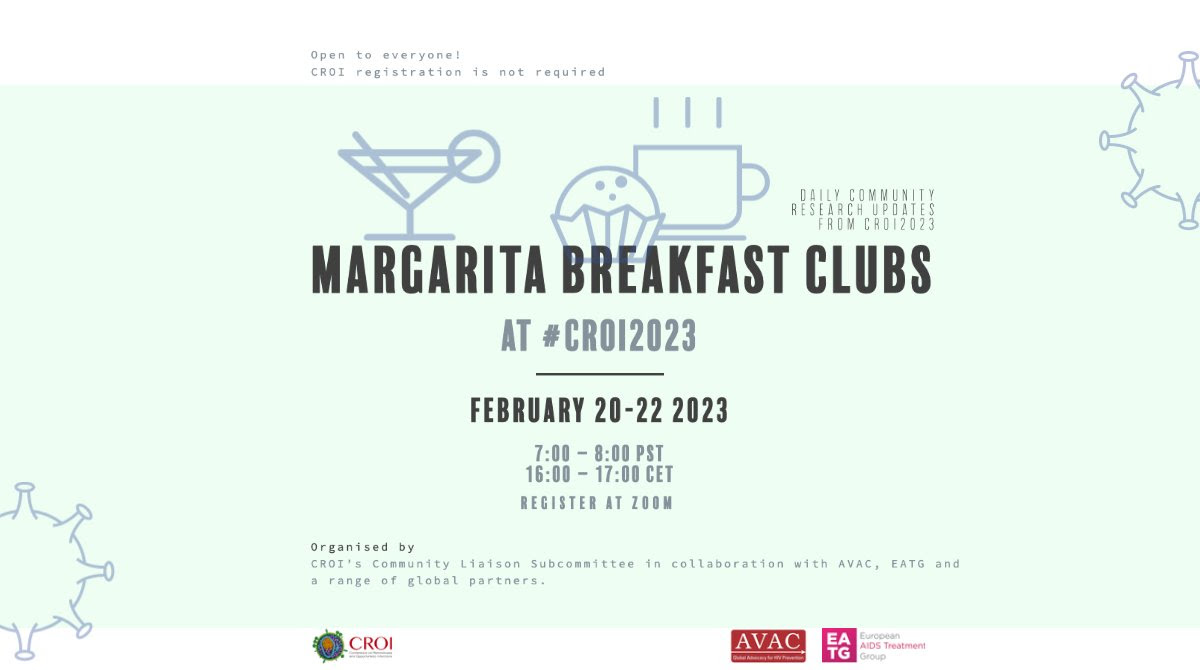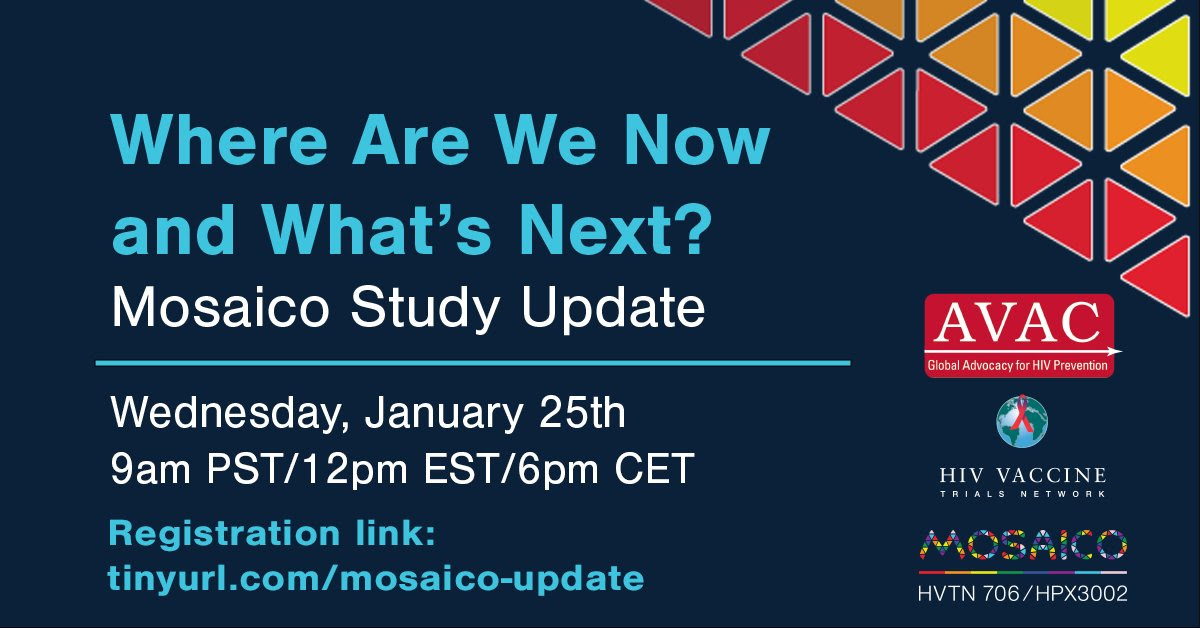AVAC Executive Director Mitchell Warren spoke with NIAID Director, Anthony Fauci to discuss all that’s been accomplished in the HIV and COVID-19 responses over the years, what’s ahead, and what the future looks like for NIAID, for Dr. Fauci and for pandemic preparedness.
Avac Event
Much Accomplished, Much to Do: A Conversation Looking Back & Looking Ahead with Tony Fauci
Avac Event
HIV, COVID-19, and Gender Inequality: A Call to Action
Many of the drivers of gender inequality in the HIV epidemic are the same as those driving inequality in the COVID-19 pandemic. During the COVID-19 pandemic, women and girls are at heightened risk of domestic violence and inadequate access of essential health care including HIV prevention and sexual and reproductive health services. To better prepare for the future, during this conversation we will discuss the imperative to address the underlying social factors like gender inequality that exacerbate these pandemics.
Avac Event
Domestic Resource Mobilization Learning Collaborative
Thursday, December 8 at 15:00 PM EAT / 14:00 PM SAST/ 13:00 PM WAT / 8:00 AM EDT marks the launch of the inaugural Domestic Resource Mobilization (DRM) Learning Collaborative. The collaborative will be a facilitated virtual space that brings together global health advocates, civil society organizations and other key stakeholders from Africa to engage in peer-to-peer learning and collaboration. Topics will include local investments in health including HIV, pandemic preparedness, research and development (R&D), and use the time to explore opportunities and challenges, and frame what questions must be answered to develop a unifying advocacy agenda.

Avac Event
2022 Global Health Landscape Symposium
The 2022 Global Health Landscape Symposium (GHLS2022) convened from December 7-8 asking the question “How do we meet this moment?” three years after an ongoing pandemic and three years since the Global Health Community last met in person. The agenda, videos and a partner toolkit are available here.
Avac Event
CROI 2023
The annual Conference on Retroviruses and Opportunistic Infections (CROI) took place from February 19 through February 22 in Seattle, Washington. This was the first in-person CROI since 2019, but also included the virtual component honed during COVID, with 3,000+ individuals registered to participate in-person and 500+ online.
Below are highlights from the conference:
Follow Along
Conference coverage was available via aidsmap, AVAC on Twitter at @hivpxresearch and the conference hashtag #CROI2023. Conference press conferences are posted here.
Preview CROI
The Choice Agenda hosted the webinar, Ready, Set, CROI 2023: Prepare for the 30th Year of CROI on February 13. Researchers previewed the program, veteran CROI advocates offered tips for navigating the conference, and researcher, Victoria Walker-Sperling broke down key features for lay audiences on understanding scientific presentations. Watch the full recording here.
Margarita Breakfast Club
AVAC, the CROI Community Liaison Subcommittees, European AIDS Treatment Group, and other partners hosted virtual Margarita Breakfast Clubs (MBCs) open to all.

Monday, February 20
Arrested Development: Discontinuation of the MOSAICO Trial, its Legacy and Expectations for HIV Vaccine Research
Recording / Slides / Summary
Tuesday, February 21
Moving Forward: Upcoming Strategies on STI Prevention
Recording / Slides / Summary
Wednesday, February 22
The Data Gap: Filling in the Missing Perspectives on Women and Children in HIV Research
Recording / Resources / Summary
CROI Round-up
Read our round-up here and subscribe to our Advocates’ Network email list for more like this.
Avac Event
Where Are We Now and What’s Next?: Mosaico Study Update
A Phase 3 study of an investigational HIV vaccine regimen has been discontinued following a planned, interim review by the study’s independent Data and Safety Monitoring Board. The investigational vaccine was generally safe and well tolerated; however, it was not effective at preventing the acquisition of HIV-1.
The results of the uniquely designed and implemented Mosaico study underscore the challenges that have faced the global scientific community in the 40-year search for an HIV vaccine, and may provide important data in the ongoing fight against HIV. Join the HIV Vaccine Trials Network and AVAC and key voices from the study including study investigators and community representatives in this important webinar as we will discuss the outcome of the Mosaico study, and discuss what these results mean and next steps.
Avac Event
Been There, Did That – Research Reflections from CROI 2023
Thursday, March 23 at 10:00–11:30am ET
Speakers will include community leaders and researchers reflecting on the most interesting, consequential science presented at CROI 2023.
Co-moderated by Devan Nambiar, Gay Men’s Sexual Health Alliance and CROI 2023 Community Educator Scholar
Featured researcher:
Dr. Monica Gandhi, UCSF
Featured community speakers:
CROI 2023 Community Educator Scholars
This webinar is a part of The Choice Agenda.
Avac Event
When Cure Means Control: An introduction to viral control off therapy
Tuesday, March 28 at 9:00 am ET
As the number of cure-related clinical trials grows, so does the number of people experiencing month-long delays in viral rebound. A very small handful of participants remain off therapy long after the trial ends. These individuals who can control HIV without therapy after an intervention are known as controllers.
This webinar will:
-Introduce the concept of viral control off therapy
-Provide a platform to ask experts questions on HIV control
-Introduce key issues advocates should be following
Featuring Jon LI, Harvard University; Marina Caskey, Rockefeller University; Ann Chahroudi, Emory School of Medicine, Josephine Nabukenya, EGPAF Board Member and IAS Governing Council Member, and moderated by Jessica Salzwedel, AVAC
Avac Event
DRM Learning Collaborative
Thursday, April 6, 15.00hours to 16.30hours (EAT)/8:00-9:30am (EST)
Welcome to this year’s first meeting of the Domestic Resource Mobilization learning collaborative. The Learning Collaborative is a virtual space that brings together global health advocates, civil society organizations and other key stakeholders from Africa to engage in peer-to-peer learning and partner in advocacy for a sustainably funded health R&D and infrastructure in Africa.
The upcoming learning collaborative meeting take place on Thursday April 6th, from 15.00hours to 16.30hours (EAT)/8:00-9:30am (EST). The focus will be on the need to invest in local vaccine manufacturing in Africa. We will discuss the landscape including challenges and opportunities, and identify priority advocacy towards expanding local manufacture of vaccines, diagnostics, and therapeutics.
Avac Event
Biomedical HIV Prevention Summit
The 6th annual Biomedical HIV Prevention Summit will take place in person on April 20-21 in Chicago, Illinois at the Sheraton Grand Chicago Riverwalk.
The Summit will highlight the role that biomedical prevention tools such as PrEP, PEP, Treatment as Prevention (TasP) and U=U have in ending the epidemic while working in the current COVID environment.
NMAC, the conference organizers, will apply COVID-19 safety protocols to ensure a safe conference experience. All conference attendees should be fully vaccinated with a booster and the latest CDC guidance for in person meetings will be followed.
Visit the conference website and watch this space for more as the conference approaches.
